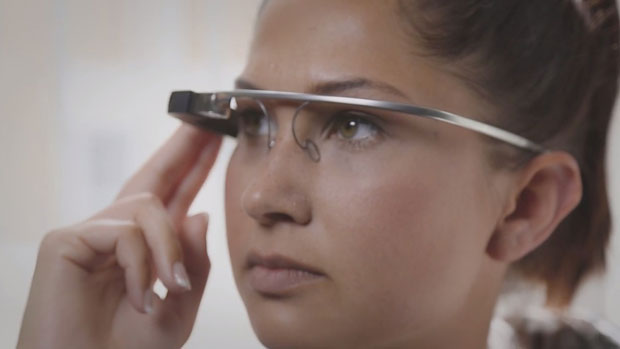Google Glass hack adds 'mind control' feature - video
New attachment allows users to take photos and share them online just by thinking about it

A free daily email with the biggest news stories of the day – and the best features from TheWeek.com
You are now subscribed
Your newsletter sign-up was successful
Are you concerned about what Google knows of you from your searches, clicks and reading patterns? Well, soon the tech company may be able to get inside your mind as well.
A new attachment for Google Glass will allow users to take pictures and share them online just by thinking. The technology, built by a London-based company, uses brain signals to control the wearable device.
An EEG (electroencephalography) headband connects with an app built by user experience company This Place which measures electrical activity in the brain. That activity is then converted into instructions that are sent to Google Glass to trigger the device's functions.
The Week
Escape your echo chamber. Get the facts behind the news, plus analysis from multiple perspectives.

Sign up for The Week's Free Newsletters
From our morning news briefing to a weekly Good News Newsletter, get the best of The Week delivered directly to your inbox.
From our morning news briefing to a weekly Good News Newsletter, get the best of The Week delivered directly to your inbox.
Dusan Hamlin, This Place's CEO, says that the app, named the MindRDR, could offer a more intuitive way to operate Glass than Google's current voice command and swipe system and could ultimately be used by those suffering from locked-in syndrome or quadriplegia.
When a user concentrates, a white line appears in the corner of Google Glass's silicone heads-up display. As they continue to concentrate, the line grows and when it is full, the inbuilt-camera will take a photo.
Google does not officially support MindRDR but a spokeswoman told the BBC that "we are always interested in hearing about new applications of Glass and we've already seen some great research from a variety of medical fields from surgery to Parkinson's".
This Place researchers believe that MindRDR could offer a more intuitive way of interacting with the device. "We wanted to realise the true potential of Glass by allowing users to control it with their minds," said Hamlin. "Currently, users either have to touch it or use voice commands, which are restrictive for some social situations and for users with disabilities."
A free daily email with the biggest news stories of the day – and the best features from TheWeek.com
The technology still has a long way to go, The Independent notes. At present MindRDR is limited to only a small number of functions. Its "lack of nuance" in determining what a user is thinking is one of the many challenges it faces. To combat this, the app's creators have launched MindRDR on the developer community GitHub, so that other programmers around the world can help to improve it.
-
 The problem with diagnosing profound autism
The problem with diagnosing profound autismThe Explainer Experts are reconsidering the idea of autism as a spectrum, which could impact diagnoses and policy making for the condition
-
 What to know before filing your own taxes for the first time
What to know before filing your own taxes for the first timethe explainer Tackle this financial milestone with confidence
-
 The biggest box office flops of the 21st century
The biggest box office flops of the 21st centuryin depth Unnecessary remakes and turgid, expensive CGI-fests highlight this list of these most notorious box-office losers
-
 Will AI kill the smartphone?
Will AI kill the smartphone?In The Spotlight OpenAI and Meta want to unseat the ‘Lennon and McCartney’ of the gadget era
-
 Has Google burst the Nvidia bubble?
Has Google burst the Nvidia bubble?Today’s Big Question The world’s most valuable company faces a challenge from Google, as companies eye up ‘more specialised’ and ‘less power-hungry’ alternatives
-
 How the online world relies on AWS cloud servers
How the online world relies on AWS cloud serversThe Explainer Chaos caused by Monday’s online outage shows that ‘when AWS sneezes, half the internet catches the flu’
-
 Is the UK government getting too close to Big Tech?
Is the UK government getting too close to Big Tech?Today’s Big Question US-UK tech pact, supported by Nvidia and OpenAI, is part of Silicon Valley drive to ‘lock in’ American AI with US allies
-
 Google: A monopoly past its prime?
Google: A monopoly past its prime?Feature Google’s antitrust case ends with a slap on the wrist as courts struggle to keep up with the tech industry’s rapid changes
-
 South Korea's divide over allowing Google Maps
South Korea's divide over allowing Google MapsTalking Points The country is one of few modern democracies where the app doesn't work
-
 Google avoids the worst in antitrust ruling
Google avoids the worst in antitrust rulingSpeed Read A federal judge rejected the government's request to break up Google
-
 Is AI killing the internet?
Is AI killing the internet?Talking Point AI-powered browsers and search engines are threatening the death of the open web